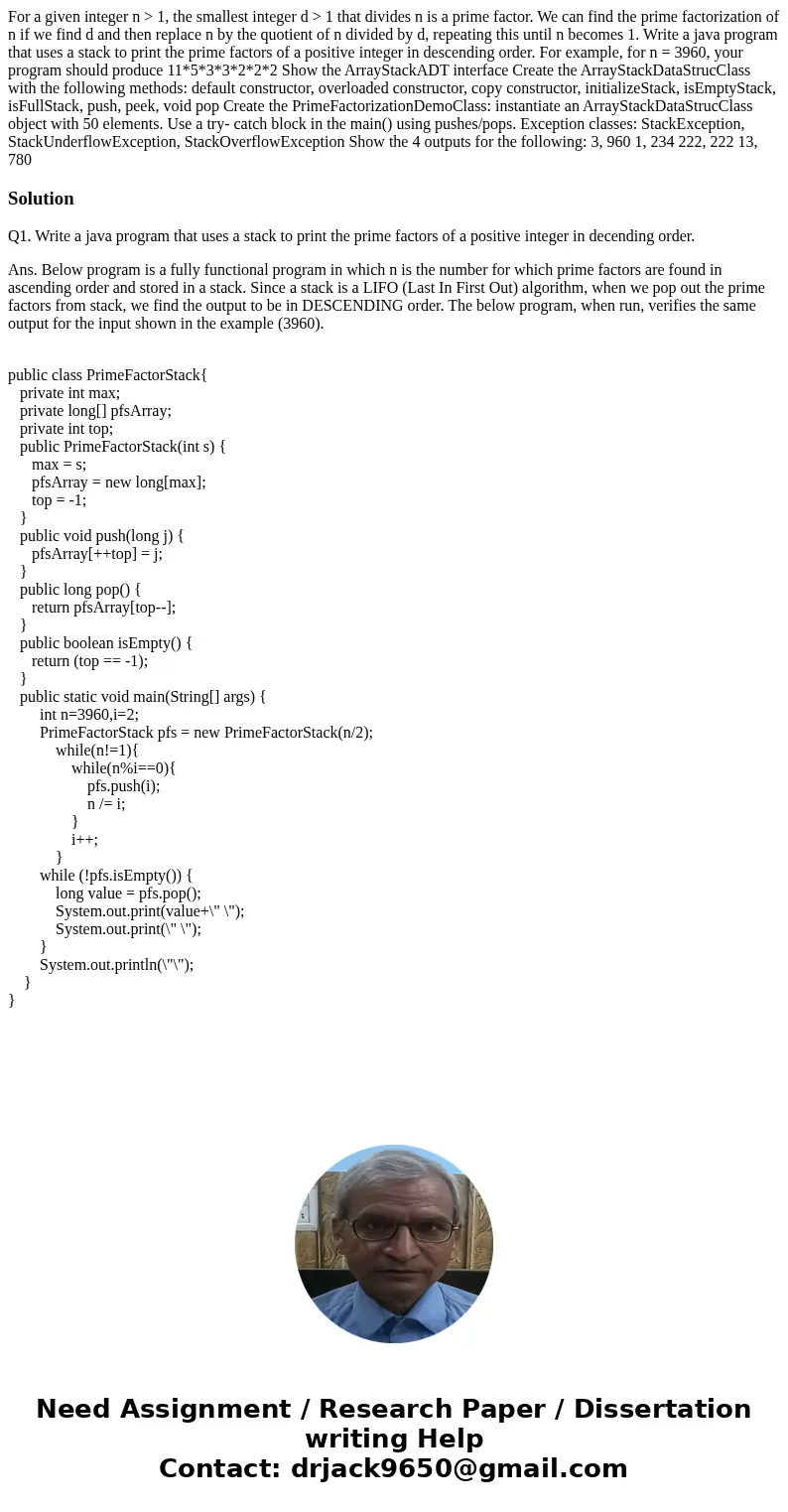For a given integer n 1 the smallest integer d 1 that divi
Solution
Q1. Write a java program that uses a stack to print the prime factors of a positive integer in decending order.
Ans. Below program is a fully functional program in which n is the number for which prime factors are found in ascending order and stored in a stack. Since a stack is a LIFO (Last In First Out) algorithm, when we pop out the prime factors from stack, we find the output to be in DESCENDING order. The below program, when run, verifies the same output for the input shown in the example (3960).
public class PrimeFactorStack{
private int max;
private long[] pfsArray;
private int top;
public PrimeFactorStack(int s) {
max = s;
pfsArray = new long[max];
top = -1;
}
public void push(long j) {
pfsArray[++top] = j;
}
public long pop() {
return pfsArray[top--];
}
public boolean isEmpty() {
return (top == -1);
}
public static void main(String[] args) {
int n=3960,i=2;
PrimeFactorStack pfs = new PrimeFactorStack(n/2);
while(n!=1){
while(n%i==0){
pfs.push(i);
n /= i;
}
i++;
}
while (!pfs.isEmpty()) {
long value = pfs.pop();
System.out.print(value+\" \");
System.out.print(\" \");
}
System.out.println(\"\");
}
}

 Homework Sourse
Homework Sourse